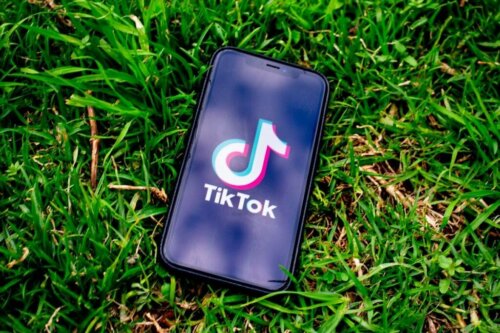TikTok has become one of the most popular social networks in recent times, especially among the youngest members of society. Indeed, kids, teens (and even adults) can spend hours scrolling through these perfectly assembled short videos. While it sounds like a great form of entertainment, it also comes with significant risks. For this reason, today we’re going to talk to you about how TikTok affects the brain.
The young generation of today are digital natives and technology is an intrinsic part of their lives. They spend a great deal of their leisure time on the Internet where they socialize as well as find knowledge. In fact, new platforms emerge every day to explore and enjoy. TikTok has come up with a particular formula that captivates and engages. Therefore, it’s important that we’re all aware of its risks and know how to use it in moderation.
The magic formula of TikTok
Although TikTok doesn’t offer anything that hasn’t already been seen on other digital platforms, it combines a series of characteristics that make it especially attractive:
- It offers short videos. The platform’s audiovisual content is made up of clips that last between a few seconds and a few minutes. Consequently, the information is concentrated and presented in a concise and eye-catching way.
- It shows each user fully personalized content. This is due to an algorithm that captures the interests of each person with great precision, thus offering them the content that’s most attractive to them.
- The short videos endlessly follow each other as we scroll across the screen. Therefore, intermittent reinforcement is generated. In other words, although we might not love all the clips, it gives the impression that ‘just around the corner’ there’ll be some amazing content that we mustn’t miss.
This is how TikTok affects the brain, powerfully activating the reward system thanks to the dopamine discharges generated by watching each of its videos. This not only provides immediate pleasure but our brains record the use of the app as a desirable activity that we’ll tend to want to repeat.
This is how TikTok affects the brain
If used judiciously and in moderation, this social platform offers great possibilities for entertainment. However, it also carries a series of risks that especially affect children and adolescents:
It decreases attention and concentration, affecting memory
Health professionals, parents, and educators have detected that minors find it increasingly difficult to pay attention and concentrate for prolonged periods. Without a doubt, social media, screens, and apps like TikTok have an influence in this regard.
We must bear in mind that young people are at a particularly vulnerable stage of their development. In fact, the prefrontal cortex (responsible for impulse control, memory and attention) doesn’t finish developing until approximately 25 years of age. Therefore, exposure to this type of stimulation (in which content and instant gratification are offered) can have a negative influence on the development of these cognitive abilities.
It impairs the ability to delay gratification
Using TikTok makes us impatient, thus we find it difficult to delay gratification. It accustoms us to obtaining reinforcement easily and quickly and makes us lose interest in everything that requires time and effort. However, in real life, patience, perseverance, and the ability to defer reward are absolutely essential.
It can lead to social and emotional development problems
As with other social media, excessive use can be detrimental to real human interactions. Indeed, as rewarding as virtual socialization is, human contact and the establishment of support networks are fundamental to our well-being. Nevertheless, it’s becoming increasingly common for us to neglect this aspect by investing our time and energy in online networks.
In addition, our youngest members are exposed to inappropriate, inaccurate, and distorted content. In fact, it’s really common for children and adolescents to compare themselves with the ‘ideal lives’ and ‘perfect physiques’ that they see online, without really being aware of the lies, bias, and filters used. This can generate self-esteem problems and lead to psychological disorders.
Furthermore, it‘s even possible that the algorithm fuels emerging or existing mental health problems. That’s because it not only shows enjoyable content but also the kind that’s related to people’s fears and concerns. Therefore, someone with depression or an eating disorder may be more exposed to content related to their condition.
It can be addictive
Lastly, one of the ways that TikTok affects the brain is by causing addiction in some of the users. This can happen relatively easily due to the immediacy of its content and the precision of the algorithm. In fact, it’s all too easy to spend many hours exploring the app without even realizing it, thus ignoring other important activities.
In addition, it’s common to experience problems when you want to stop using the app, even when we know we’ve been on it for too long and want to disconnect from it.

Now you know how TikTok affects the brain, it’s time to take action
Although this platform, like so many others, involves risks and drawbacks, we don’t want to demonize it. Indeed, it’s possible to enjoy it and take advantage of its content as long as you know how to maintain healthy limits. It’s vital that you restrict how long you use it, pay attention to the content you consume, and, above all, be aware of how the app can affect you.
If you have teenagers who use TikTok, set them limits, monitor them, and remain vigilant. Explain the risks and give them guidelines for proper use; but, above all, encourage them to have a complete and varied life beyond the virtual world.
The post How TikTok Affects the Brain appeared first on Exploring your mind.



















Comments